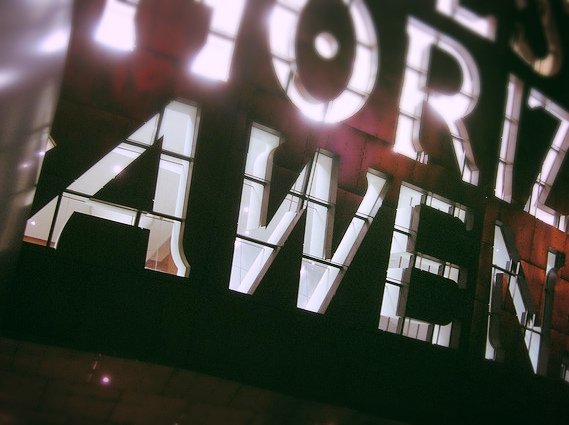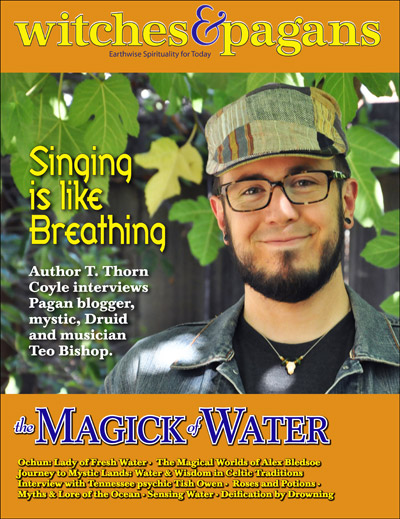It begins like this.
You arrive. You sit down in front of this stranger, and you smile. You ask them how their drive was, and whether traffic was bad. You’re likely to talk about which freeway is crammed, which route they took. This is the ice-break talk.
At some point you look at them and say,
“Ok. Shall we start?”
And you do. It’s a subtle shift. An internal shift. It’s as though your tool of outward listening is inverted; a phase button flipped on the board, and suddenly you’re listening to the wordless sound of your intuition, your heart.
“What do you want to write about?”
This is a simple question, but it’s often overlooked. People make a habit of singing their way into a song, especially those with exceptional voices. Great singers have the hardest time writing good songs, because everything they sing sounds like quality even if it isn’t.
You ask this person what she wants to write, and a small crisis occurs.
Who am I? her expression says.
With as many status updates posted informing the masses of our preferences you’d think we’d each have a better grasp of who we were. But ask this question — What do you want to write about? — during a songwriting session, and you’ll find that the stuff of self-knowing is a mystery to most of us. Even those (perhaps especially those) in search of fame.
Often it is only through your collaborator talking freely about the ordinary aspects of life that you are able to understand who she is, what she’s interested in, what kind of language she uses. She might say something like,
“I never thought much about God.”
Or,
“Heaven is a lie, but I believed it.”
Or,
“I didn’t think twice. I just told him it was over.”
During this first conversation, which might take you and your collaborator fifteen minutes or an hour depending on her openness, your patience, and the presence of Awen between you, you establish a base for your song. The first words form a kind of topographical map, and your work then becomes the walking of invisible trails and the describing of what you see.
“You never thought much about God. Why? Were you angry at God?”
“No. I just had better things to do.”
And just like that, the song explodes in a new direction.
It isn’t a planned demolition; it’s more a trip wire on the dance floor. The bomb goes off and the walls come down, and everything she’d built to protect herself from the truth disappears in an instant. In a vulnerable moment she became honest with you, and her honesty allowed you to get a glimpse of the Awen. The song, then, becomes the vehicle for communicating the truth as it presents itself in her life.
A song is little more than a conversation between the songwriter and the listener. The more honest the songwriter can be about her truth, the more deeply the words will connect with the listener. A song can be a testimonial, a sermon, a proclamation, a confession, or a plea, but a song is never a monologue. There is always the listener, and though the listener may not be able to communicate directly with the songwriter she is processing what she hears; translating it, transmuting it, absorbing it, becoming it or rejecting it. As the songwriter has undergone a personal transformation in the process of writing the song, so, too, will the listener undergo a similar process when she hears the final work. The more raw the former, the more impactful the latter.
The writing of a song may take hours or it may take no time at all. There is no formula (in spite of what Cerridwen’s myths may say). As mentioned above, Awen plays an essential role in the process, and it is best that at least one of the collaborators is attentive to its subtle movement should you wish to get at something true and lasting in your work.
 Awen — a Welsh word for “poetic inspiration” and a fundamental component of many forms of Druidry — is real. It is the creative force that moves through a writer, a bard, a singer, or a poet. It is ever-present, though often undetected. It is beyond the reach of the impatient, and unknown to those who are resistant to stillness and quiet. The work of the bard is to create the space within herself through which the Awen can move, and then, when it does, to move with it as gracefully as she can.
Awen — a Welsh word for “poetic inspiration” and a fundamental component of many forms of Druidry — is real. It is the creative force that moves through a writer, a bard, a singer, or a poet. It is ever-present, though often undetected. It is beyond the reach of the impatient, and unknown to those who are resistant to stillness and quiet. The work of the bard is to create the space within herself through which the Awen can move, and then, when it does, to move with it as gracefully as she can.
This process of writing is not calculated, or drafted, or hammered out in some laborious process. The words are received. One writes through the Awen. It flows and caresses its way into being, and in its becoming — through the magic of its unfolding — the writer experiences a sensation that is a little bit like love.
Love envelops. Love soothes. Love is relentless in its honesty.
The same can be said for the Awen.
The truth is not often pleasant, but it is always beautiful in its symmetry and form. The making of music, not unlike the fashioning of ritual (or its performance for that matter) is an open invitation into a relationship with that beauty. It is a movement toward mystery, but in the most humble of ways. There is no need for theater, for regalia, for posturing and pretending. All that is needed is honesty, and a willingness to sit with the discomfort that honesty can sometimes bring.
Your ritual with this stranger may have begun with discussion about the traffic on the 405 — a necessary introduction to the ordinary — but it turned into something altogether different. It became a kind of communion with the holy through a deep, inner connection to the Awen within.
You needn’t be a Druid to reach for the spirit of creativity, but doing so might bring you closer to the spirit of Druidry. Or Wicca. Or it may have nothing to do with a particular Pagan tradition. But reaching for the Awen, listening for the Awen, creating a space inside for the movement of the Creative Spirit, will add profound dimension to your life. You may come to understand the act of writing as a process which teaches you about the art of being human. Or you may write a hit song. Or you may do both.
But the point is not to create some specific thing. The outcome is always secondary to the process, for it is within the process of creation that you come to better understand yourself and your purpose. It is through the act of creation that you expand into greater fullness as a human being.
So you say goodbye to your writing partner, both of you changed in unexpected ways, and you head toward your rental car. You turn on the radio to check the traffic, and you leave behind the heavy work of creation.
At some point down the road it will begin again.
To read more about my thoughts on songwriting, creativity, and Druidry, pre-order your copy of the upcoming Witches and Pagans magazine, in which I’m interviewed by T. Thorn Coyle.
A quote:
“Spirituality and religion can become dominated by all kinds of rules and restrictions, and so can music for that matter. But the breath and the voice can operate independently of those rules. To sing can be to abide by one’s own rules, to re-write them, or to abandon structure altogether.”
Get your copy here.
Photo by Simon Webster
The Wild Hunt is not responsible for links to external content.
To join a conversation on this post:
Visit our The Wild Hunt subreddit! Point your favorite browser to https://www.reddit.com/r/The_Wild_Hunt_News/, then click “JOIN”. Make sure to click the bell, too, to be notified of new articles posted to our subreddit.


Of all my experience that I consider as numinous, it is those moments — those flashes — or creativity that I experience while programming (different from songwriting in many ways, but no less an art form in the hands of the right coders) that make me feel most at peace with my space and myself.
Awen has always seemed to be a part of my programming practice, the sense that sometimes you just have to let it happen or be taken down a road to see what lays at the end, in ways that other programmers who like to have a plan and design documents, needs assessments and finite state automata have trouble fully understanding.
Beautifully written. Thank you.
Some of my best moments are when I hit a really good flow* state when working on art or writing. It’s as though I have become a channel through which an underground spring flows, the point at which the water transits from the deep, dark earth to the open-air world above. In those moments, there are no wrong words, no bad stitches, no ugly paintstrokes. Everything comes together just as it should.
And there are times, whenever I am not creating, I am anticipating the very moment when I am unleashed upon my art space or my keyboard, where I have the freedom to stretch myself out and open up to that flow again. I’ve been criticized before for putting my art before anything else, and sometimes that’s been the case. There were times in my life where I chased the flow like a starving hound because it was all I had that nourished me. In healthier times I can hold myself back and be patient until that time comes again. The real trick is to find ways, though, to bring that flow state into other parts of my life, and that’s my current challenge. Balance is key.
*Flow as defined by Mihaly Csikszentmihalyi.
Interesting post. Reminds me of Wod but I suppose they are pretty close to the same thing. It is always interesting to read about the creative process and how it works for different people. It is so very different in different people.
Some of my favorite writers work in a very systematic and organized way. They work out formulas and use very intellectual means. I don’t think that means that they aren’t tapping into inspiration in a very real way. It is kind of like any ritual or rite in how the structure is meant to give space to inspiration or experience not replace it. It is a way of preparing for inspiration. Waiting for inspiration without any kind of preparation seems to be a doomed endeavor.
Preparation can take on many forms. I have read of writers who think of a goal/end for their work and then figure out how things get there. I have talked to people who just try to think of what kind of story/song/poem/expression they want to share and then build on that like some sort of foundation. Others seem to build out a skeleton in the form of an outline and then flesh it out with inspiration.
The thing that strikes me when I look at how different people engage in the creative process is I don’t think it actually comes from the exact same place. I firmly believe that there are many stores of inspiration and many ways to tap into them. I like that. I like people being different and being to share their differences in constructive ways. I am different than someone with different cultural/genetic/social/gender/orientation heritage and that is okay and good even because it means I can learn from them and experience something with them that helps me grow and maybe I can share something back. Another person’s inspiration might be different than mine but that doesn’t mean it can’t inspire me too.